- Home
- Linda Castillo
Gone Missing (Kate Burkholder 4) kb-4 Page 5
Gone Missing (Kate Burkholder 4) kb-4 Read online
Page 5
“Not that we’ve found, but we’re still gathering information,” McNinch says.
“Analyst is looking at everything now,” Tomasetti adds. “Once we arrive on-scene, we’ll talk to the families. That’s where you come in.”
I nod. “That’s where we’re going to get the brunt of our information. The families. Friends.”
“We haven’t been able to get our hands on photos,” Bates adds.
“Most Amish won’t have photos of their children,” I tell him.
He stares at me blankly, and I realize he’s probably not an Ohio native. “Most Amish don’t like to have their photos taken,” I tell him. “They feel it’s a vain display of pride. Some of the more conservative have biblical beliefs that keep them from having any kind of likeness done.”
“We’ve brought in the state Highway Patrol,” Bates says. “They wanted photos, but all we could give them were physical descriptions.”
“If the parents will cooperate, we may be able to get a sketch done,” I offer as an alternative. But everyone knows a sketch takes time and isn’t as helpful as a photo.
“Say the word and we’ll get someone down there,” Bates says.
Tomasetti glances at his watch, and I know he’s sending his superiors a not-so-subtle message to hurry this along so we can get on the road.
“Has local law enforcement talked to the parents?” I ask.
Tomasetti nods. “I talked to the sheriff. He didn’t get much. Apparently, the parents are as baffled as we are.”
McNinch scrubs a hand over his head. “No reflection on small-town law enforcement, but I suspect these people are out of their league. You know, small departments with minimal resources. They’re under-staffed. The sheriff sold vacuum cleaners before he took the job, for Chrissake. No offense, Kate, but the majority of these guys just don’t have the experience for this kind of investigation.”
“None taken.” I smile at him. “Just FYI, I’ve never sold vacuum cleaners.”
McNinch chuckles. “Then you’re not out of your depth.”
I hope not, a small voice inside me whispers.
CHAPTER 4
Fifteen minutes later, Tomasetti and I are on the road in his Tahoe, heading east on the Ohio Turnpike toward Buck Creek, Ohio, where the most recent disappearance took place. The town is located near the Mosquito Creek Wilderness area in the northeastern part of the state. It’s about an hour from the Richfield office, through pretty countryside dotted with small towns, farms, and miles of tall hardwood forest. Tomasetti drives well over the speed limit, which takes a bite out of the drive time. At Newton Falls, we cut north on Interstate 5 and pass through Cortland, then take a less-traveled state highway toward Buck Creek.
Fifteen minutes later, a sign welcomes us: THE HUNTING CAPITAL OF OHIO, POPULATION 1,200. The first thing I notice about the town are the trees. Ancient buckeyes, maples, and elms line the main drag, their massive trunks nearly obscuring the buildings from view. We pass a manufacturing park where Erie Overhead Door and Whittle Plastics share a gravel lot that’s jam-packed with cars and trucks. The downtown area is quaint, with redbrick storefronts, hanging pots over-flowing with petunias, and an old-fashioned cobblestone street. We pass half a dozen antiques shops, two sporting-goods stores, a bank that looks like something out of the Bonnie and Clyde era, and The Early Bird newspaper.
We turn left at the traffic light, pass a massive Lutheran church and the Buck Creek High School, home of the Fighting Panthers, and then we’re on a twisty two-lane road, heading out of town. Trees encroach onto the shoulders of the road, the canopies blocking the sun, so that only the occasional shaft of light flashes across the windshield. It’s cooler here, perhaps because of our proximity to the lake, and Tomasetti flicks off the air conditioning. I’m in the process of opening my window when his cell erupts.
He thumbs a button, then growls his name into his Bluetooth. “Where?” he snaps after a moment. Then: “We’re on the way.”
He ends the call, then shoots me a look. “Do you want the good news or the bad news?” he asks.
“Let’s start with the good,” I reply.
“I just took a call from the sheriff. We have our first scene.”
“That is good news.” Other than catching someone red-handed, or finding the missing, having a scene from which to extract evidence is the best news we could receive at this point. “What’s the bad news?”
“There’s blood. According to the sheriff, a lot of it.”
“Shit.”
“Yeah.”
“Anything else?”
“Locals are there, looking around. I’m going to get a CSU down here.”
“How far?”
“A couple of miles from here.”
“That’s one of the things I like about small towns,” I tell him. “Never far to the scene of the crime.”
A mile down the road, we turn onto a narrow asphalt track. A quarter mile in, a Trumbull County sheriff’s cruiser with its emergency lights flashing is parked on the gravel shoulder. Two additional cruisers straddle the road at haphazard angles, blocking both lanes. A uniformed deputy drops orange caution cones to divert traffic. Another strings yellow crime-scene tape, using the trees that grow alongside the road and the tops of the cones to cordon off the area.
Tomasetti stops a good distance from the scene and pulls onto the gravel shoulder. We exit simultaneously and head toward the nearest cruiser.
The air is cool and clean and filled with a cacophony of birdsong. We’re in the midst of a forest that turns midday into twilight. The thick underbrush forms a seemingly impenetrable wall on both sides of the roadway. The area is shadowed and humid and has the feel of some vast wilderness—or a place where something bad could happen and no one would ever know. Aside from the occasional crackle of a police radio, it’s so quiet, I can hear the buzz of insects.
“I’m sorry, folks, but the road’s closed.”
I look up to see a large man in plainclothes striding toward us, his expression grim. He’s about forty years old, with a military buzz cut and a handlebar mustache that looks touched up to cover the gray. He’s wearing khaki trousers, a white shirt with the underarms sweated through, and a leather shoulder holster with a nice-looking Taurus .380 sticking out of its leather sheath. He looks more like the Hollywood version of a private detective than a county sheriff, and I get the impression he’s a hit with the ladies—a fact that doesn’t elude him.
He motions in the direction from which we came. “You’re going to have to turn around and take the township road.”
His voice trails off when Tomasetti holds up his identification. “We’re with BCI.”
The man’s expression softens and I see a flash of relief. “I thought you two looked kind of official.” Chortling, he sticks out his hand. “I’m Sheriff Bud Goddard.”
Tomasetti makes the introductions, and I show my temporary ID, which was issued to me just this morning.
Goddard pumps my hand with a little too much enthusiasm, and I know he’s genuinely glad we’re here. “You’re that Amish police chief nabbed that serial killer a few years back.” His voice is as deep and melodic as that of a bass opera singer.
“Formerly Amish,” I tell him. “Agent Tomasetti thought I might be able to lend a hand.”
“Well, them Amishers do prefer to keep to themselves.” He motions toward the scene, where a deputy is talking on his cell. I wince upon spotting what looks like dirty motor oil from a blown engine spilled on the road. But I know it’s not. “As soon as we finish up here,” he tells us, “I’d like to drive out there and talk to the family. They don’t have a phone. Sure would appreciate it if you came along. They’re the damnedest lot to interview, if you know what I mean.”
The words come at me like a cockeyed blow, not a direct hit, but just enough to chafe my sensibilities. He’s right, but that doesn’t make me like the generality any less.
Tomasetti is staring in the direction of the stained roadway.
“Who discovered the scene?”
“Motorist spotted a bag on the road about an hour ago. When he got out to take a look, he found all that blood. He remembered hearing about the missing girl and called nine one one.”
“That’s a lot of blood,” I say. Too much, a little voice whispers in the back of my mind.
The sheriff grimaces. “If it’s hers, I suspect that girl’s either hurt bad or dead. Course, we got a lot of deer around here. Damn things get hit all the time. We looked around and didn’t find a carcass, but I suppose it’s possible it ran off. You guys got any kind of field test that will tell us if it’s animal or human?”
Tomasetti nods. “Not with me, but I’ll call the CSU and tell them to grab an RSID kit. It’s pretty quick, so we should get an answer right away.”
“That’d be a tremendous help. At least we’ll know what we’re dealing with.” Goddard looks toward the bloodstain and shakes his head. “We think the bag belongs to the missing girl. During the initial interview, her parents said she was carrying one. We’ll run it over there and see if they can ID it.”
As if by some unspoken mutual agreement, the three of us start toward the pool of blood. Around us, the tempo of the forest seems to increase, pulsing with birdsong, cicadas, and other insects. The whoit whoit whoit of a cardinal echoes off the thick canopy overhead. The air is heavy and still and smells of damp foliage. As we draw closer to the stain, I discern the buzz of hundreds of flies. They’re feeding on the blood, I realize.
The stain is a red-black slick nearly four feet in diameter, mostly dry now, except for the center. I can smell the deep copper scent of it. At least one vehicle has driven through it, leaving a decent impression of the tread. The CSU will take tire-tread imprints, but my gut tells me that more than likely they were made by an inattentive motorist who simply didn’t notice. At some point, some small animal left paw prints at a place where it may have lapped at the blood.
It’s a macabre scene in the crepuscular light. Like the sheriff, I hope for some benign explanation—a deer struck by a car. But in my gut, I know it’s human blood. I know something terrible happened here. In light of the fabric satchel lying a few feet away, I’m pretty sure it happened to the missing girl.
I look at Tomasetti. “Is that a fatal amount?”
He grimaces. “Hard to tell. Maybe.”
“She could have been walking alongside the road and got hit by a car,” Goddard says, but he doesn’t look convinced.
“With that kind of scenario, it seems like internal injuries would be a more likely result,” I say.
“And there’s no body,” says Tomasetti.
“Maybe whoever hit her put her in the car,” Goddard offers. “Took her to the hospital.”
“No skid marks,” I say.
“Unless it wasn’t an accident.” Tomasetti glances at the sheriff. “Did you check area hospitals?”
Goddard nods. “I’ve got my secretary checking.”
Around us, the forest goes silent, as if in reverence, due to the violence that transpired just a short time ago in this very spot.
Tomasetti scans the surrounding woods. “Do you have the manpower to search the area?”
“I can probably round up some volunteers.” Goddard unclips his phone from his belt but then pauses to indicate the tire marks. “What do you think about those?”
Tomasetti squats and studies the tread mark. “CSU might be able to lift tread imprints. If we can match those to a manufacturer, we might catch a break.”
“How old do you think this blood is?” Goddard asks.
Tomasetti shakes his head. “There’s quite a bit of drying around the edges. Spatter is dry.” He looks up, and I realize he’s trying to figure out how much sun gets past the trees. “Doesn’t get much sun here. It’s humid. I’d say six or seven hours.”
The sheriff jerks his head. “I’ll get to work on those volunteers.”
Stepping away from the scene, Tomasetti pulls out his phone, punches in numbers, and begins speaking quietly.
I study the scene, trying to envision what might have happened. The bag lies on the gravel shoulder, about four feet from the bloodstain. A couple of ears of sweet corn still wrapped in their husks have spilled out of it, looking out of place on the asphalt. I cross to the bag for a closer look. It’s a satchel made of quilted fabric—an Amish print—and looks homemade. My mamm had a similar one when I was a kid; she used it when she went to the grocery store or into town for supplies.
Pulling a pen from my jacket pocket, I squat next to the bag and use the pen to open it and peer inside. I see green peppers, another ear of sweet corn, and tomatoes that have gone soft in the heat. Straightening, I cross to the sheriff. “Is there a vegetable stand nearby?”
He blinks at me, as if realizing he should have already explored that angle. “The Yoders run a stand a couple miles down the road.”
“You talk to the folks at the stand?”
“Not yet,” he says sheepishly. “There ain’t no phone out there.”
The statement sounds like an excuse, and he knows it. The last thing I want to do is ruffle local feathers. By all indications, he’s competent and capable. Still, I’m surprised that hadn’t occurred to him.
Looking chagrined, he pulls his phone from his belt. “I’ll get one of my deputies out there.”
I walk the scene, memorizing as much of it as I can. The location of the pool of blood, the proximity of the satchel in relation to the blood, the angle of the tire tread.
When he ends the call, I ask, “Did you photograph the scene?”
“Not yet.”
“Have you checked registered sex offenders in the area?”
“My secretary is pulling it now.”
We study the scene for a minute or so and then I ask, “What can you tell me about the family?”
“Girl’s parents are Edna and Levi King. They’re Old Order. Nice folks, though. I think they got about eight kids now, with Annie being the oldest. Anyway, they came into my office about eight this morning and told me she didn’t come home last night.
“Evidently, they spent the night looking for her. Got the neighbors involved. Finally, they got so worried, they decided to involve the police.” He swats a fly off his forehead. “I wish they’d come to me right away, so we could have gotten a jump on this.”
“You have a description of the girl?”
“They didn’t have a photo.” He pulls a note pad from his back pocket, flips it open. “Fifteen years old. Brown hair. Brown eyes. A hundred and fifteen pounds. Five feet five inches.” He grimaces. “I seen her a time or two. Pretty little thing.”
A picture of her forms in my mind. I see a plain, slender girl with work-rough hands. Trusting. At 115 pounds, she would be easy to overpower. Easy to control. I pull out my own pad and jot down the information. “Do you know what she was wearing?”
“Blue dress with a white apron. Black shoes. One of them bonnet things on her head.”
“Prayer kapp,” I tell him.
He gives me a “Yeah, what ever” look.
“Does she have a boyfriend?”
“To tell you the truth, Chief Burkholder, the parents weren’t very forthcoming about the girl’s personal business. They kind of clammed up when I asked, and I got the impression they were uncomfortable talking to me.” He grimaces. “I was thinking we could run out there so you could have a go at them.”
“Sure,” I tell him.
“CSU is on the way.”
We turn at the sound of Tomasetti’s voice. He’s striding toward us. “Should be here in an hour or so.”
“I think we need to speak with the parents,” I tell him.
“Sounds like a good place to start.” He glances at Goddard. “Do you have the manpower to protect the scene?”
“I’ll tell my deputy to stay put until your crime-scene guy gets here.” He starts toward the young officer.
Tomasetti and I head toward the Tahoe. “What do you think?” I
ask as we climb in.
He grimaces. “I think that blood is a bad fucking sign.”
I agree, but I don’t say the words.
Ten minutes later, we turn onto a winding gravel lane bounded on both sides by cornfields, the shoulder-high stalks shimmering like some massive green mirage in the afternoon sun. A tangle of raspberry bushes grows along the wire fence on the north side. White dust billows from the tires of Sheriff Goddard’s cruiser in front of us, tiny stones pinging against the grille of the Tahoe.
A quarter mile in, the track opens to a large gravel area. Two hulking red barns trimmed in white loom into view. Ahead, I see several smaller outbuildings, an old outhouse, and a rusty metal shed. On my left, a white farmhouse with tall, narrow windows and a green tin roof looks out over the land. I wonder about all the things the house has witnessed over the years and I know this place, like so many others in this part of the country, has stories to tell.
Beyond, several huge maple trees shade a manicured yard teeming with blooming peonies and tufts of pampas grass with spires as tall as a man. A scarecrow wearing a straw hat and suspenders stands guard over a garden abundant with strawberries and green beans. An Amish girl in a tan dress stops hoeing to watch us.
I recall reading, when I was in college, that sense memories can be a powerful trigger of flashbacks. The sight of this farm, combined with the smell of cattle and horses and that of summer foliage, elicits an intense sense of déjà vu. This farm is uncannily similar to the one I grew up on, and for the span of several seconds I’m transported back to the past. I see my mamm, a clothespin between her teeth, hanging trousers and dresses on the clothesline. Looking at the field behind the barn, I imagine my brother Jacob driving our team of Percheron geldings while my datt and the neighbor boy cut and bundle hay. I remember the frustration of being stuck in the house, scrubbing floors, when I desperately wanted to be outside on the back of one of those horses.
They were happy, innocent times, and though that part of my life was far from perfect, the memories evoke an uneasy sense of longing. It’s not that I want to be Amish again or that I want to recapture my youth or a past I know is forever gone. But invariably when I remember those days, I can’t help but think of all the things I left unfinished. Mostly my childhood, which was cut short long before its time. So many things I left unsaid, most of it to my family. But if I’ve learned anything in my thirty-three years, it is that no matter how badly you want a redo, life never makes such allowances.

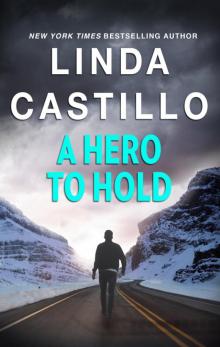 A Hero to Hold
A Hero to Hold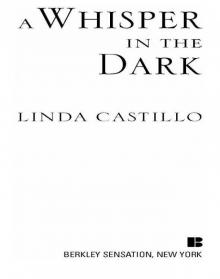 A Whisper in the Dark
A Whisper in the Dark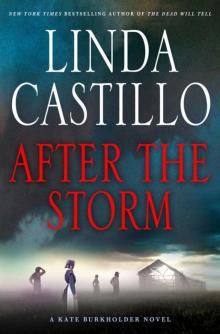 After the Storm
After the Storm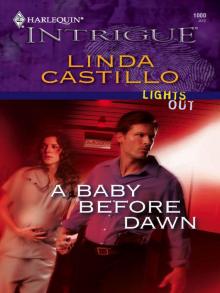 A Baby Before Dawn
A Baby Before Dawn Breaking Silence
Breaking Silence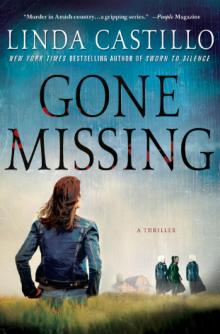 Gone Missing
Gone Missing Long Lost
Long Lost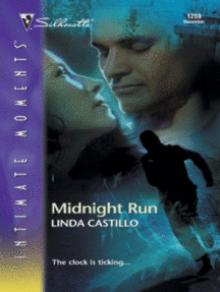 Midnight Run
Midnight Run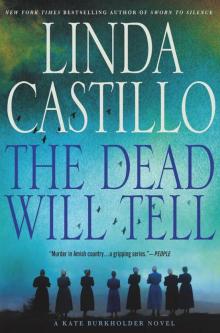 The Dead Will Tell
The Dead Will Tell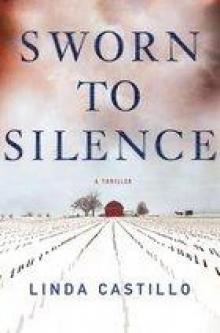 Sworn to Silence
Sworn to Silence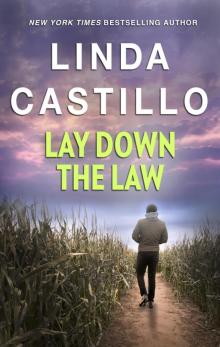 Lay Down the Law
Lay Down the Law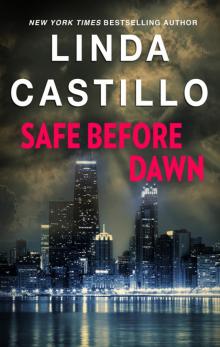 Safe Before Dawn
Safe Before Dawn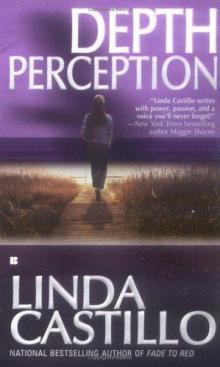 Depth Perception
Depth Perception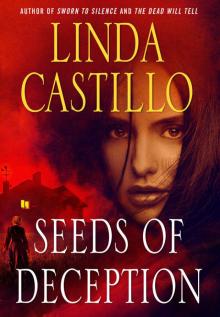 Seeds of Deception
Seeds of Deception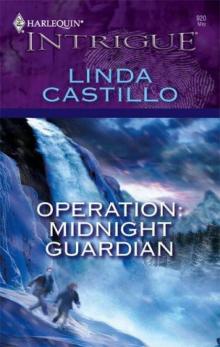 Operation: Midnight Guardian
Operation: Midnight Guardian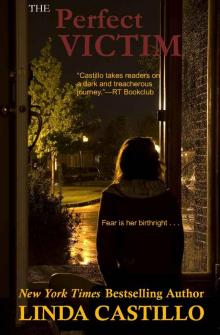 The Perfect Victim
The Perfect Victim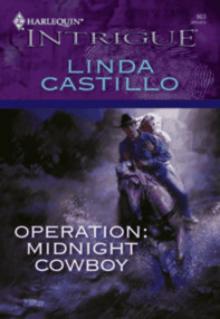 Operation: Midnight Tango
Operation: Midnight Tango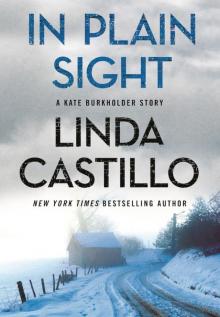 In Plain Sight (Kate Burkholder)
In Plain Sight (Kate Burkholder)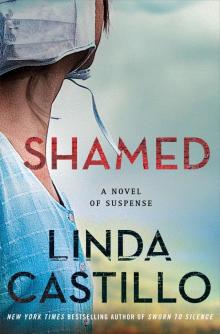 Shamed
Shamed Fallen
Fallen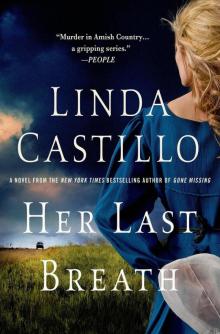 Her Last Breath
Her Last Breath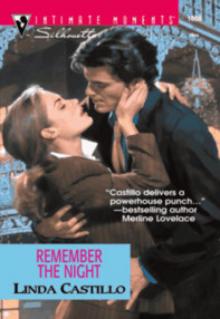 Remember the Night (Men in Blue)
Remember the Night (Men in Blue) Dead Reckoning
Dead Reckoning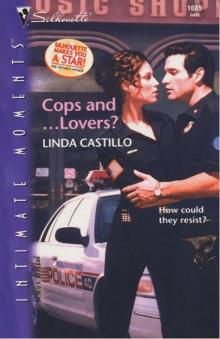 Cops and ... Lovers?
Cops and ... Lovers? The Pact
The Pact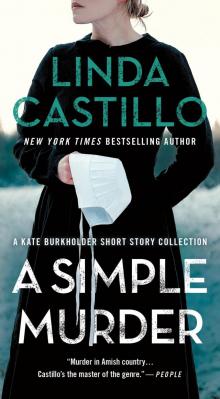 A Simple Murder
A Simple Murder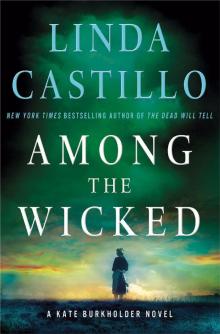 Among the Wicked
Among the Wicked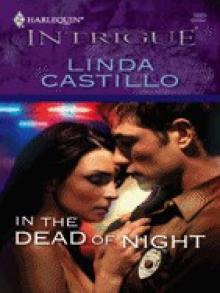 In the Dead of Night
In the Dead of Night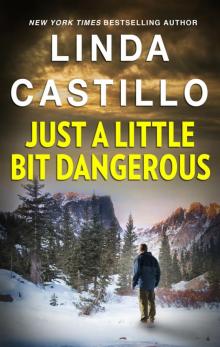 Just a Little Bit Dangerous
Just a Little Bit Dangerous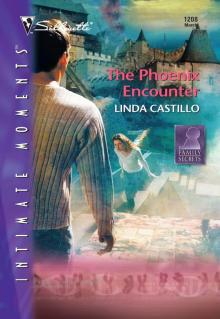 The Phoenix Encounter
The Phoenix Encounter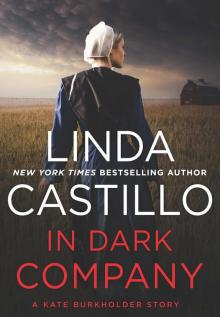 In Dark Company
In Dark Company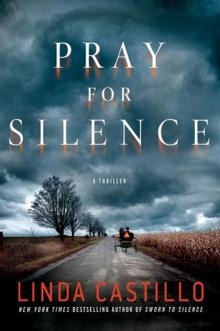 Pray for Silence
Pray for Silence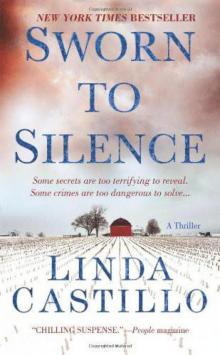 Kate Burkholder 01-Sworn to Silence
Kate Burkholder 01-Sworn to Silence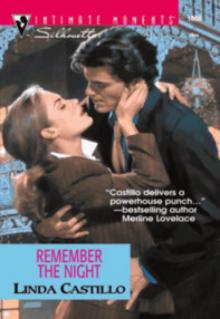 Remember the Night
Remember the Night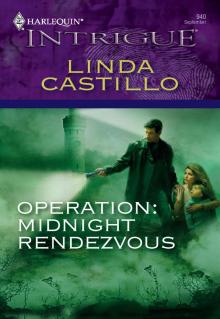 Operation: Midnight Rendezvous
Operation: Midnight Rendezvous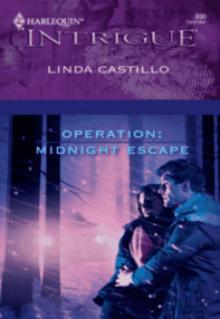 Operation: Midnight Escape
Operation: Midnight Escape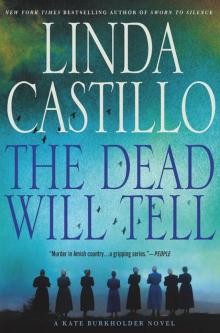 The Dead Will Tell: A Kate Burkholder Novel
The Dead Will Tell: A Kate Burkholder Novel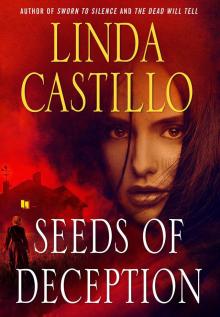 Seeds of Deception: A Kate Burkholder Short Story
Seeds of Deception: A Kate Burkholder Short Story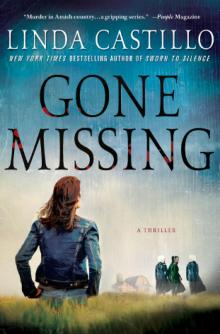 Gone Missing (Kate Burkholder 4) kb-4
Gone Missing (Kate Burkholder 4) kb-4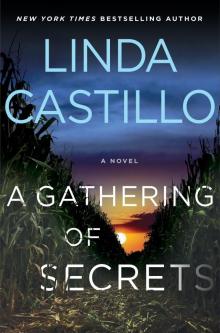 A Gathering of Secrets
A Gathering of Secrets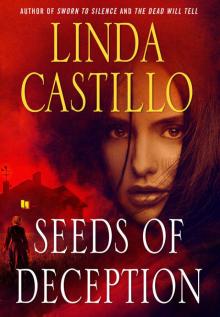 Seeds of Deception: A Kate Burkholder Short Story (Kindle Single)
Seeds of Deception: A Kate Burkholder Short Story (Kindle Single)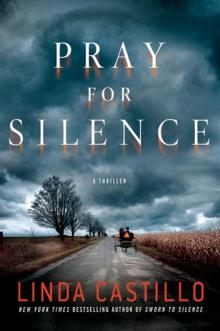 Pray for Silence kb-2
Pray for Silence kb-2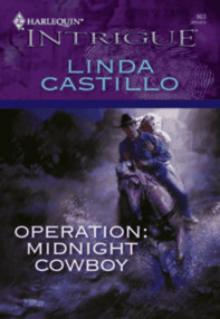 Operation: Midnight Cowboy
Operation: Midnight Cowboy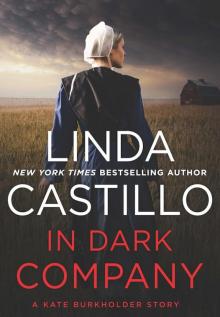 In Dark Company_A Kate Burkholder Short Mystery
In Dark Company_A Kate Burkholder Short Mystery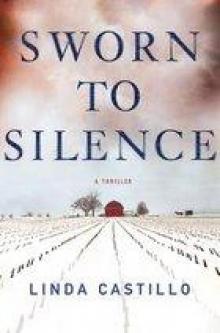 Sworn to Silence kb-1
Sworn to Silence kb-1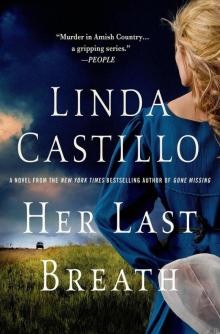 Her Last Breath: A Kate Burkholder Novel
Her Last Breath: A Kate Burkholder Novel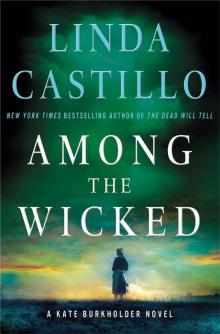 Among the Wicked: A Kate Burkholder Novel
Among the Wicked: A Kate Burkholder Novel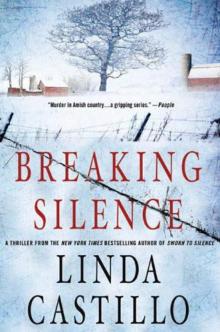 Breaking Silence kb-3
Breaking Silence kb-3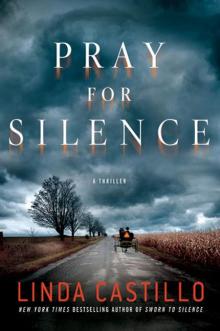 Kate Burkholder 2 - Pray for Silence
Kate Burkholder 2 - Pray for Silence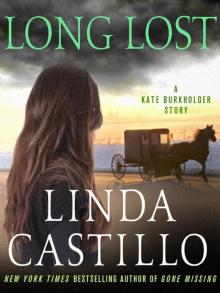 Long Lost: A Kate Burkholder Short Story
Long Lost: A Kate Burkholder Short Story